Oakland A's team captain, Sal Bando, was a respected leader who had a pivotal role in leading the Oakland A's during their three year run as World Series Champions. The four time All-Star finished second, third, and fourth in the most valuable player voting from 1971-1974, with a 16 year MLB career of 242 home runs.
1973 World Series 50th Anniversary Reunion
1973 World Series Reunion Pregame Ceremony Recap
April 16, 2023Learn More about the Champs
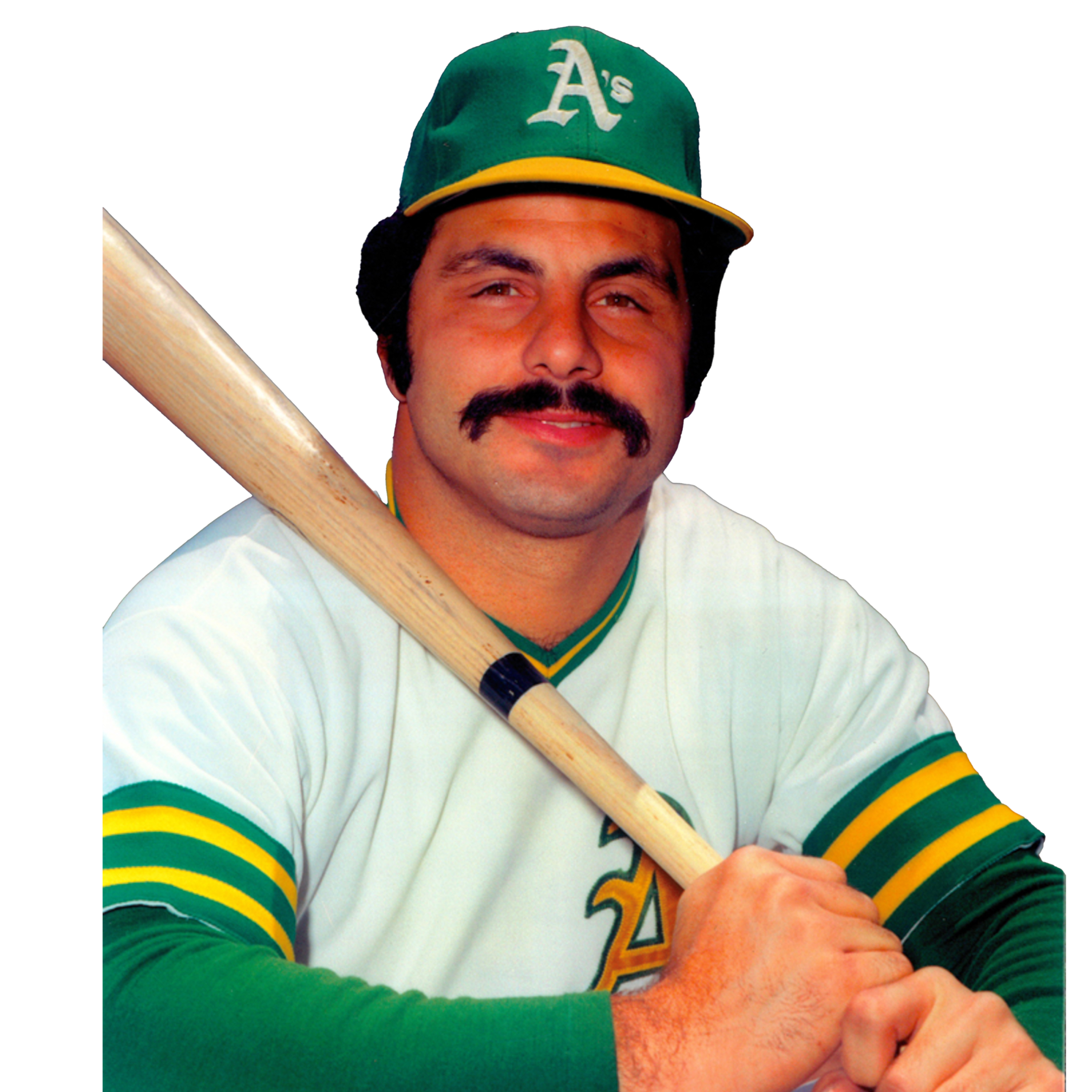

Playing nine of his 17 seasons in Oakland, Vida Blue, at age 21 was named the MVP and Cy Young winner in 1971 with the Oakland A's. This hard-throwing, left-handed pitcher who was selected for six All-Star games, and won 20 games in 1973 and completed 13 of his 37 starts.

Bert "Campy" Campaneris is the Athletics all-time leader in games played and hits. In his 13 seasons with the A's, he led the league in steals six times and earned five of his six all-star honors. Campy hit .290 in the 1973 World Series against the Mets, including the game-winning RBI single in the 11th inning of Game 3 and a three-hit game with a two-run home run in Game 7.
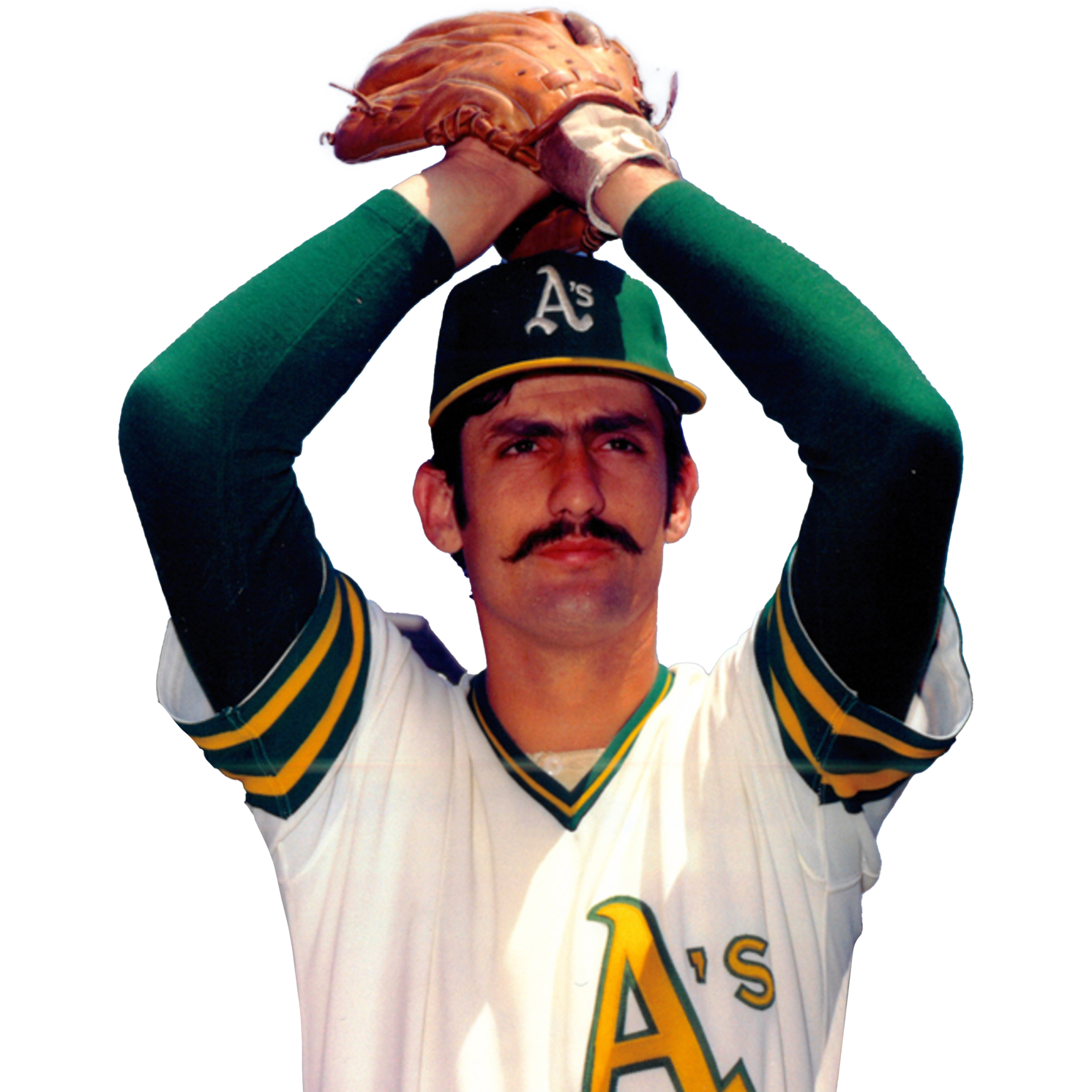
Hall of Famer and seven time All-Star pitcher, Rollie Fingers, spent the first nine seasons of his 17 year career with the Oakland A's. Rollie pitched in six of the A's seven World Series games in 1973, earning the save in Games 3 and 6. Not only did Rollie's pitching put him on the map, but also his iconic facial hair–the handlebar mustache.
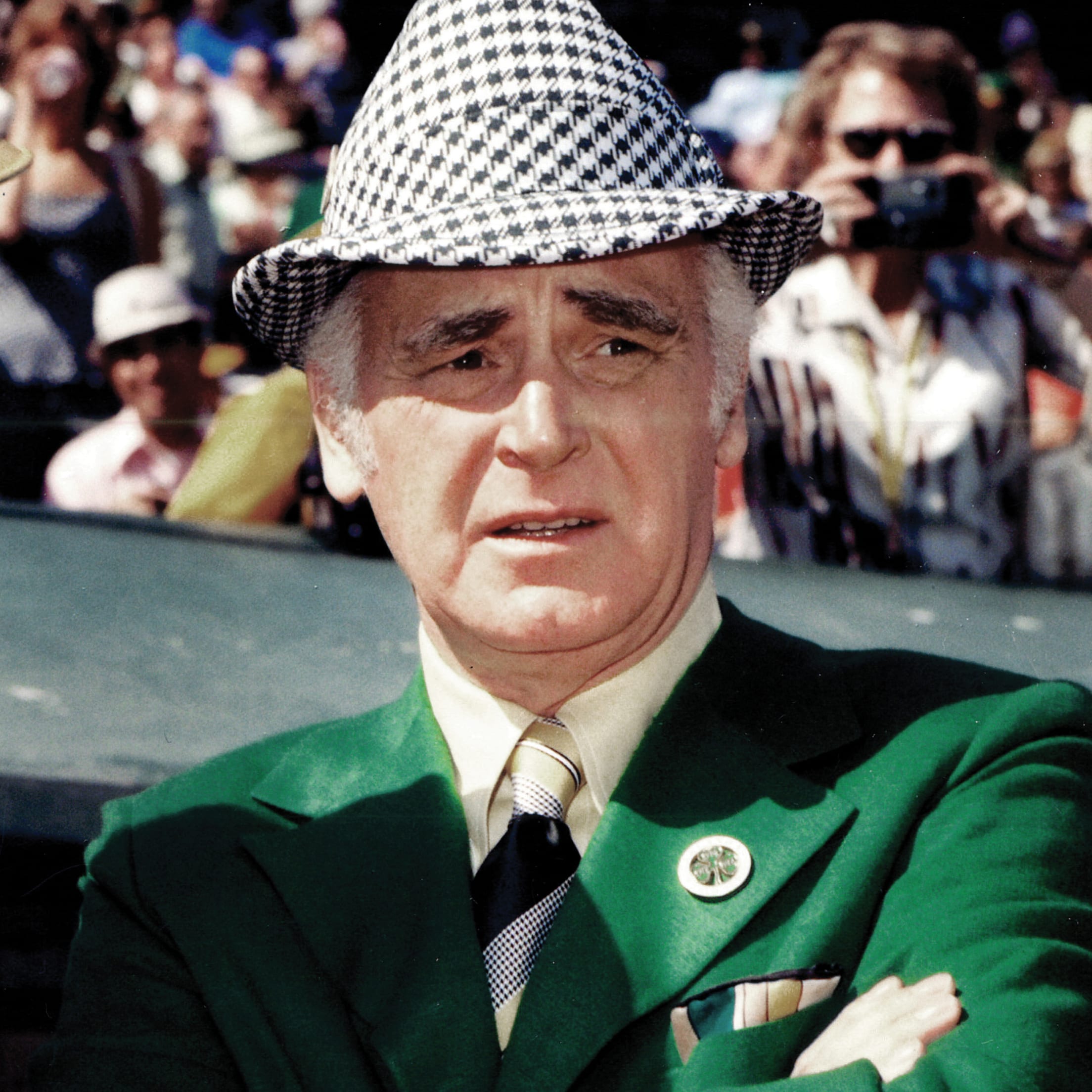
A man ahead of his time, Charlie Finley challenged baseball traditions and introduced a number of innovations to the game designed to make the fan experience more entertaining. The franchise's owner from 1961-1980, he moved the club from Kansas City to Oakland in 1968 and built the most dominant team of the early 1970s with three straight World Series titles.

Ray Fosse blazed a unique trail to A's immortality. It began with three years as a player from 1973-75 and concluded with 37 seasons in the front office, including 36 as a broadcaster. Fosse was a catcher for the A's World Champion teams in 1973 and 1974 and he returned to Oakland in 1985 in a front office role. He moved into the radio booth in 1986 and was a mainstay on A's radio and television broadcasts until passing away following the 2021 season.
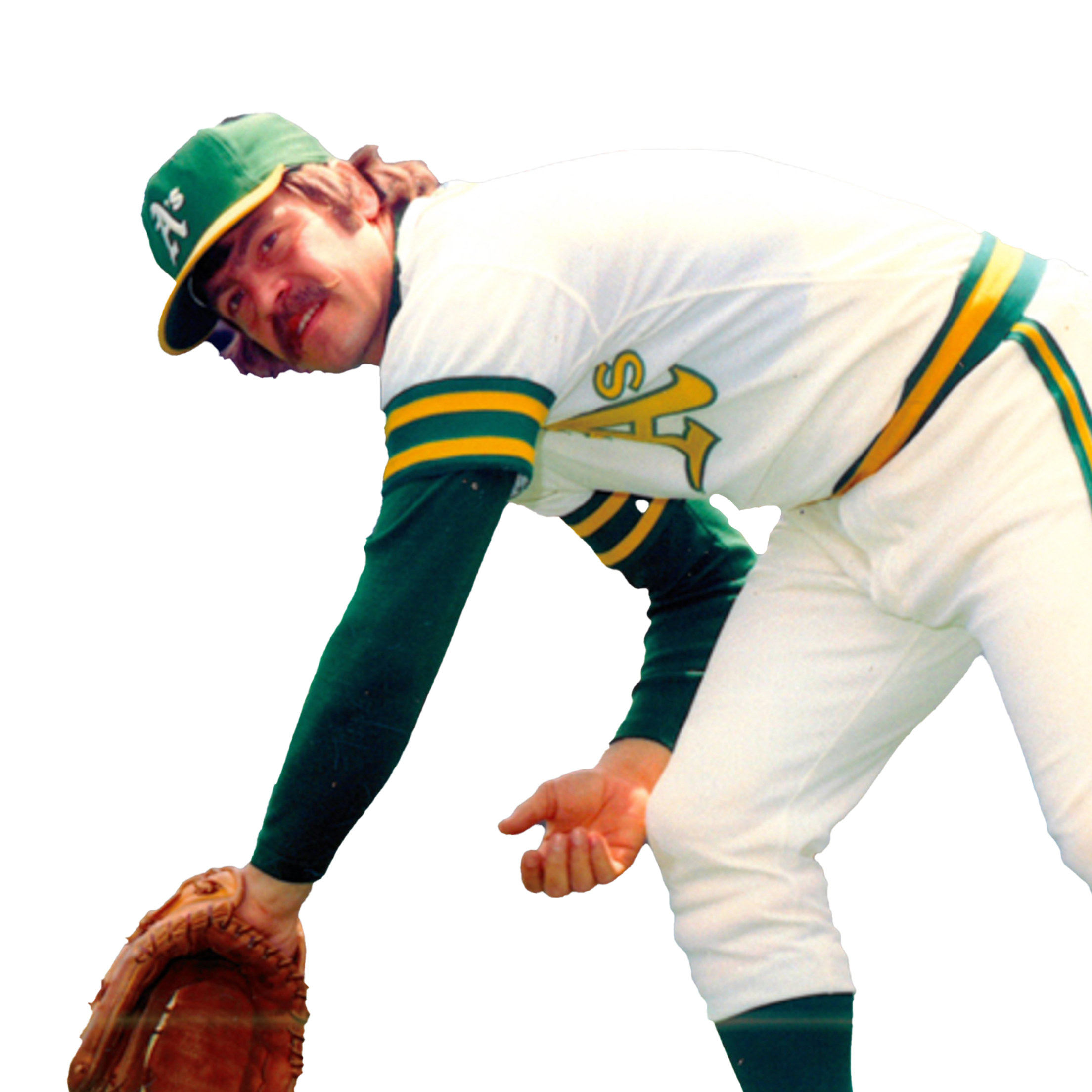
Dick Green was one of the best fielding second basemen of his time and played his entire career in Green and Gold starting at Kansas City then Oakland. As he started all 19 of the A's World Series games at second base from 1972-74, he was honored with the Babe Ruth Award for the best performance in the 1974 postseason. He was the career leader for games played by a second baseman (1158) and batted .333 in the 1972 World Series.
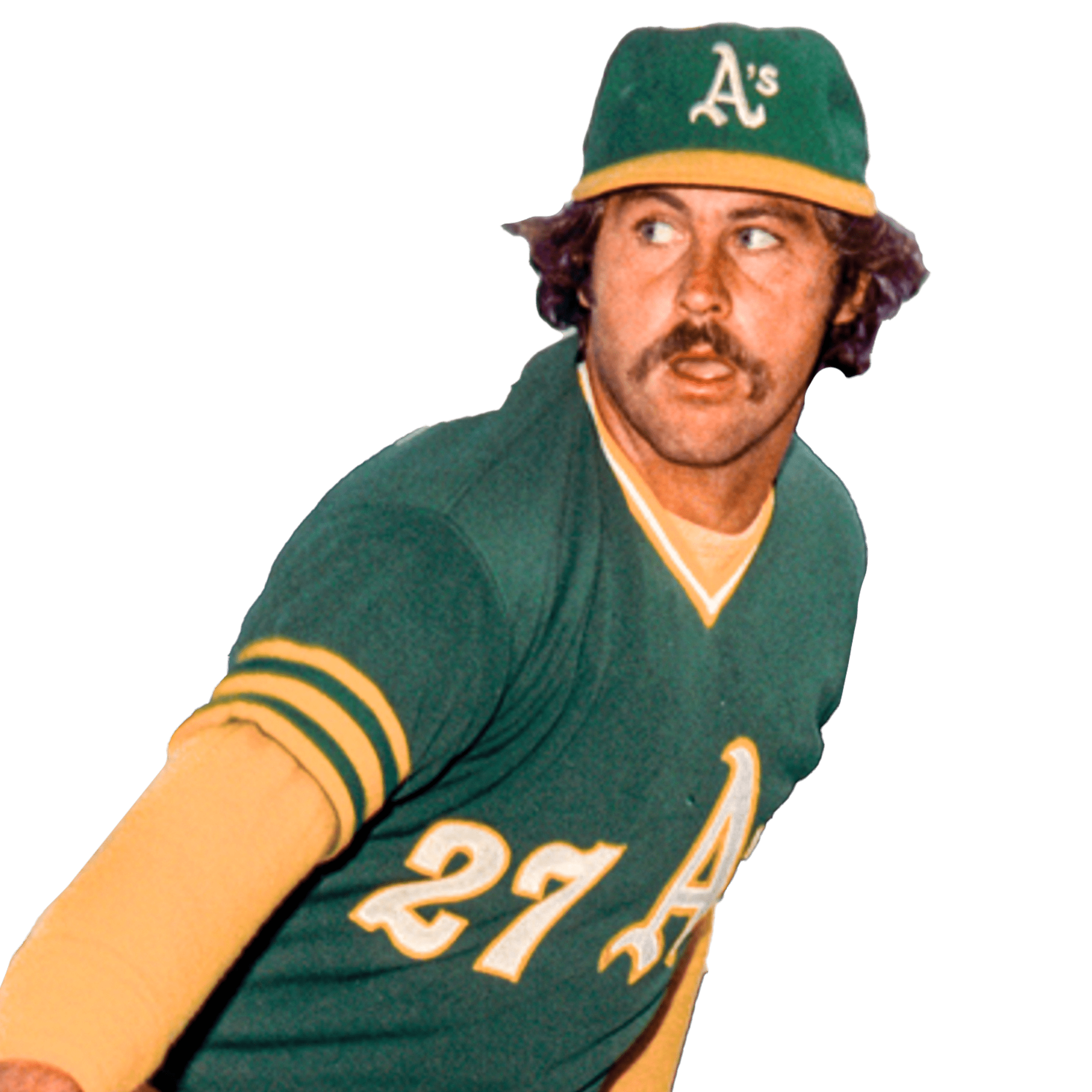
Catfish Hunter was an eight time All-Star, 1974 Cy Young award winner and 1987 Hall of Fame inductee. He has many highlights of his career including, throwing a perfect game on May 8, 1968, and going 3-0 in four postseason starts in 1973, including a win in Game 6 of the World Series. His number 27 is retired by the A’s and he was part of the inaugural Athletics Hall of Fame. Catfish Hunter died of ALS in 1999.
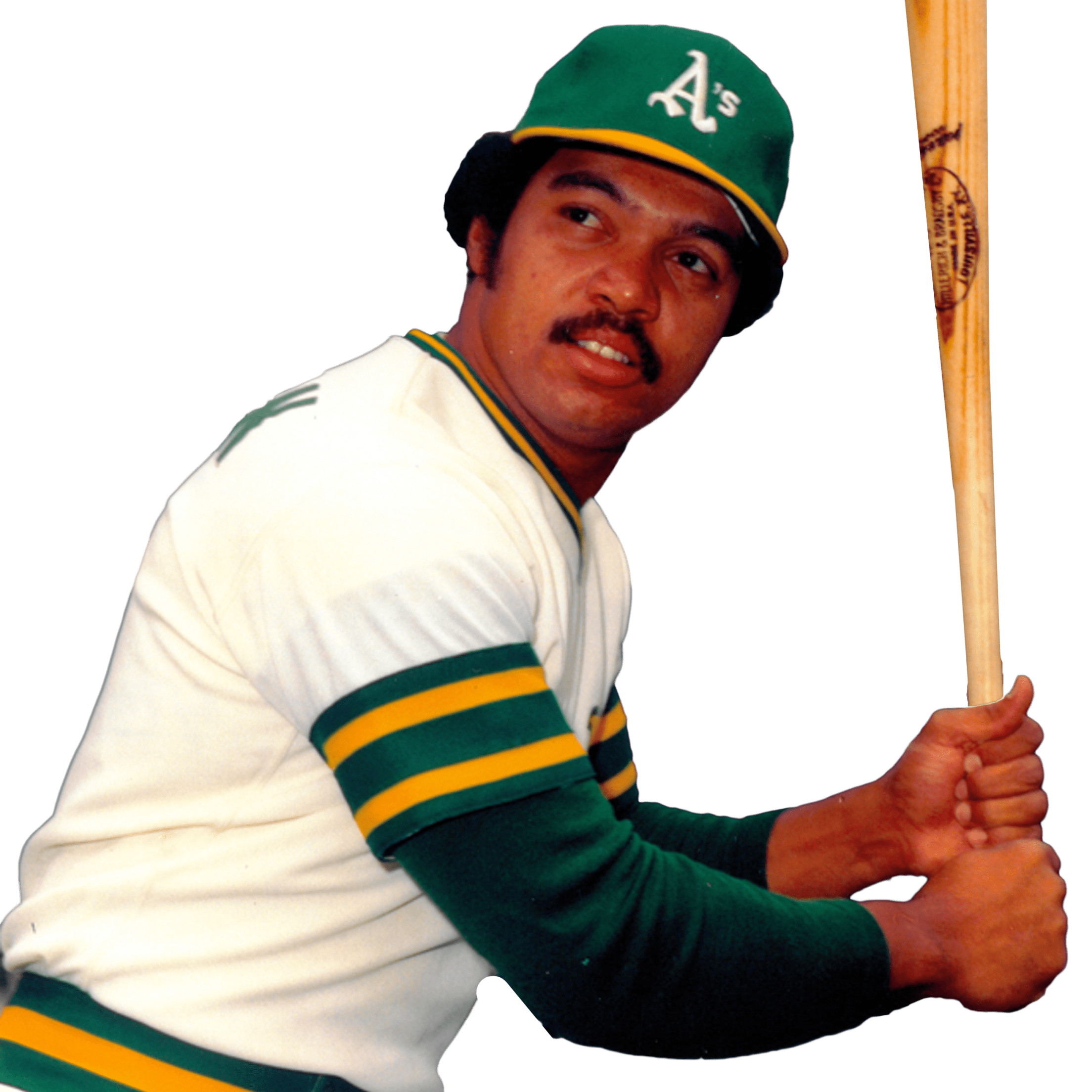
Right fielder Reggie Jackson, also known as, “Mr. October”, was the 1973 World Series MVP and the American League MVP in 1973. He batted .310 with five extra base hits and six RBI in the 73 World Series against the Mets, including three hits in Game 6 and a two-run home run in Game 7. During his 21 year career, Reggie hit 563 home runs and earned 14 All-Star honors with six of those All-Star nods with Oakland. He was inducted into Cooperstown in 1993 and the Athletics Hall of Fame in 2018.
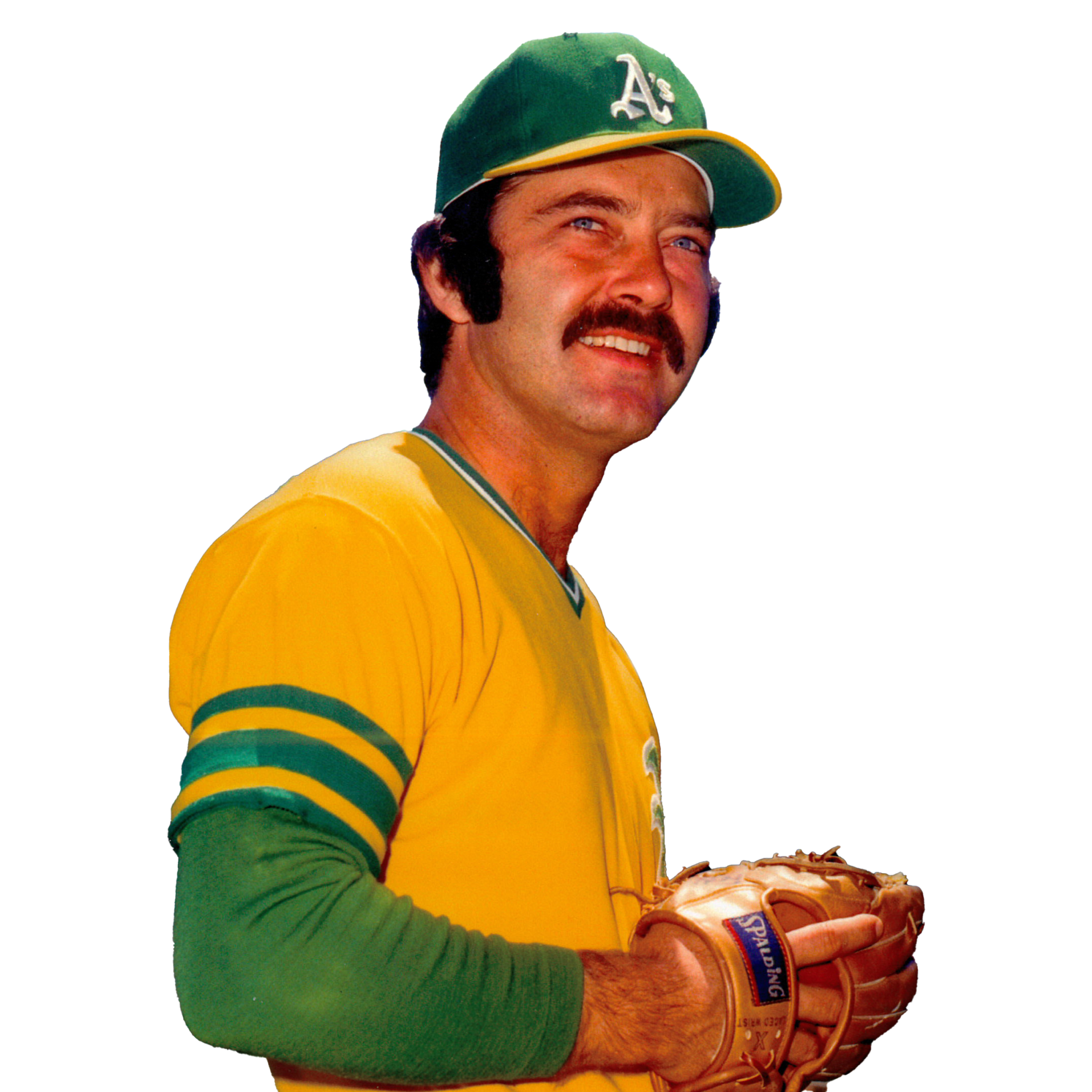
As a relief pitcher, Darold Knowles is a member of the Oakland A's dynasty that won three consecutive World Series. In 1973, Darold became the first pitcher to appear in all seven games of the World Series. He saved two games that series, including Game 7 when he got Wayne Garrett to pop out to clinch the A's second consecutive World Championship.
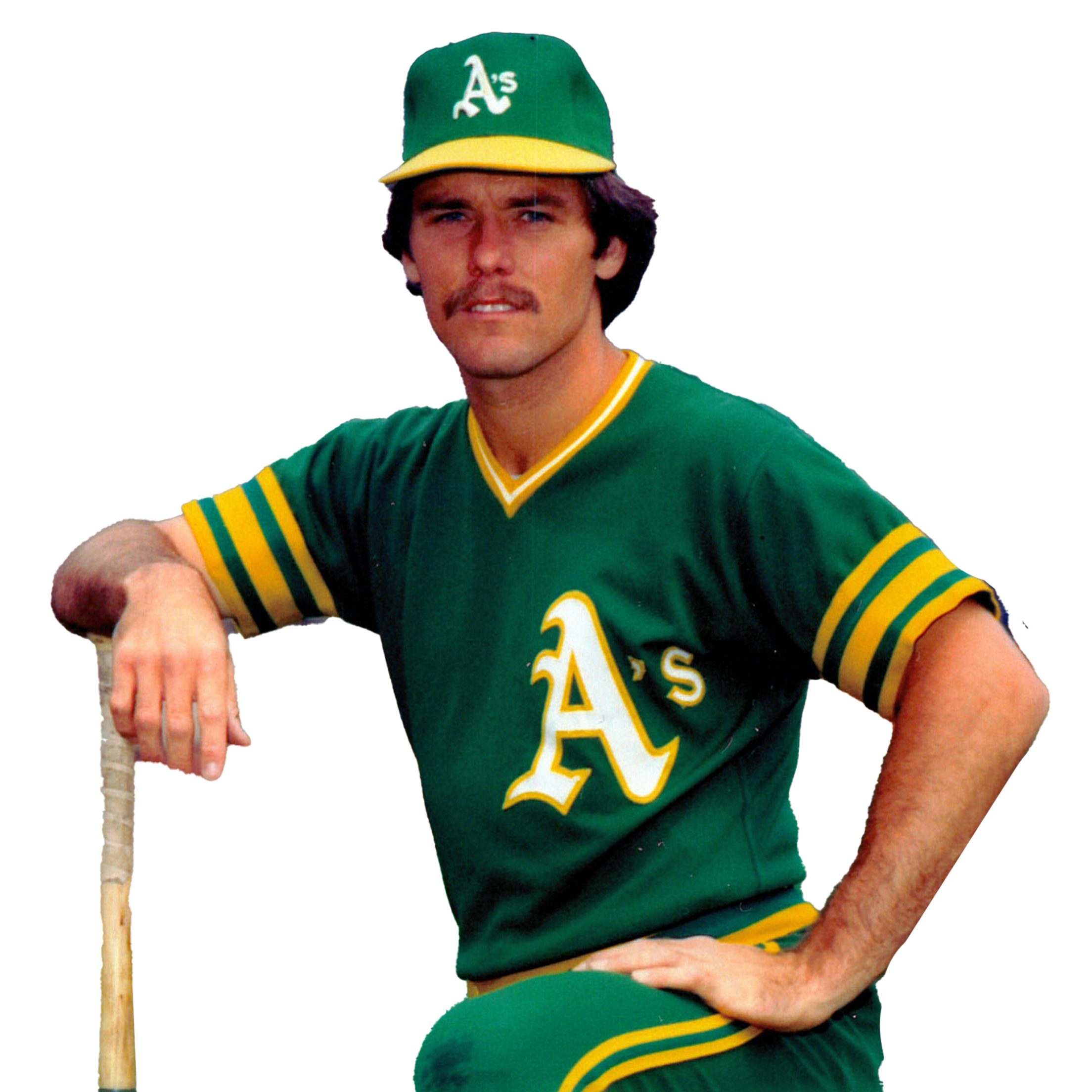
Infielder, Ted Kubiak, played for a total of seven years with the A's, starting with the Kansas City A's and then played two stints in Oakland. For the A's three consecutive World Championship teams from 1972-74, he played second base, third base and shortstop.
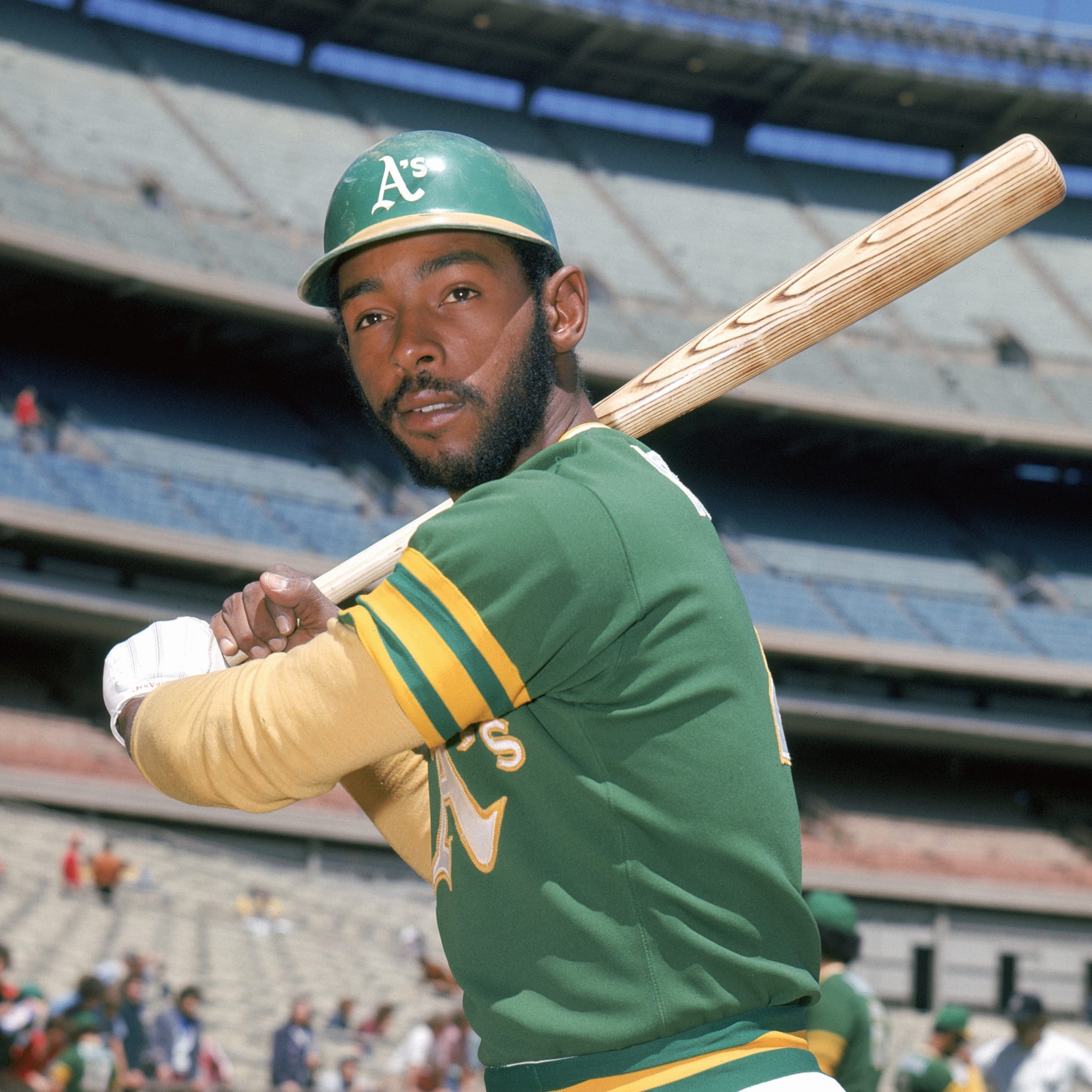
Billy North played six of his 11 seasons in the majors with the A's from 1973-78. He led the 1973 World Champions with 53 stolen bases but missed the postseason due to an injury. North topped the American League in steals twice, swiping 54 bags in 1974 and 75 in 1976. He stole 395 bases in his career, including 232 with the A's, which is third most in Oakland history.
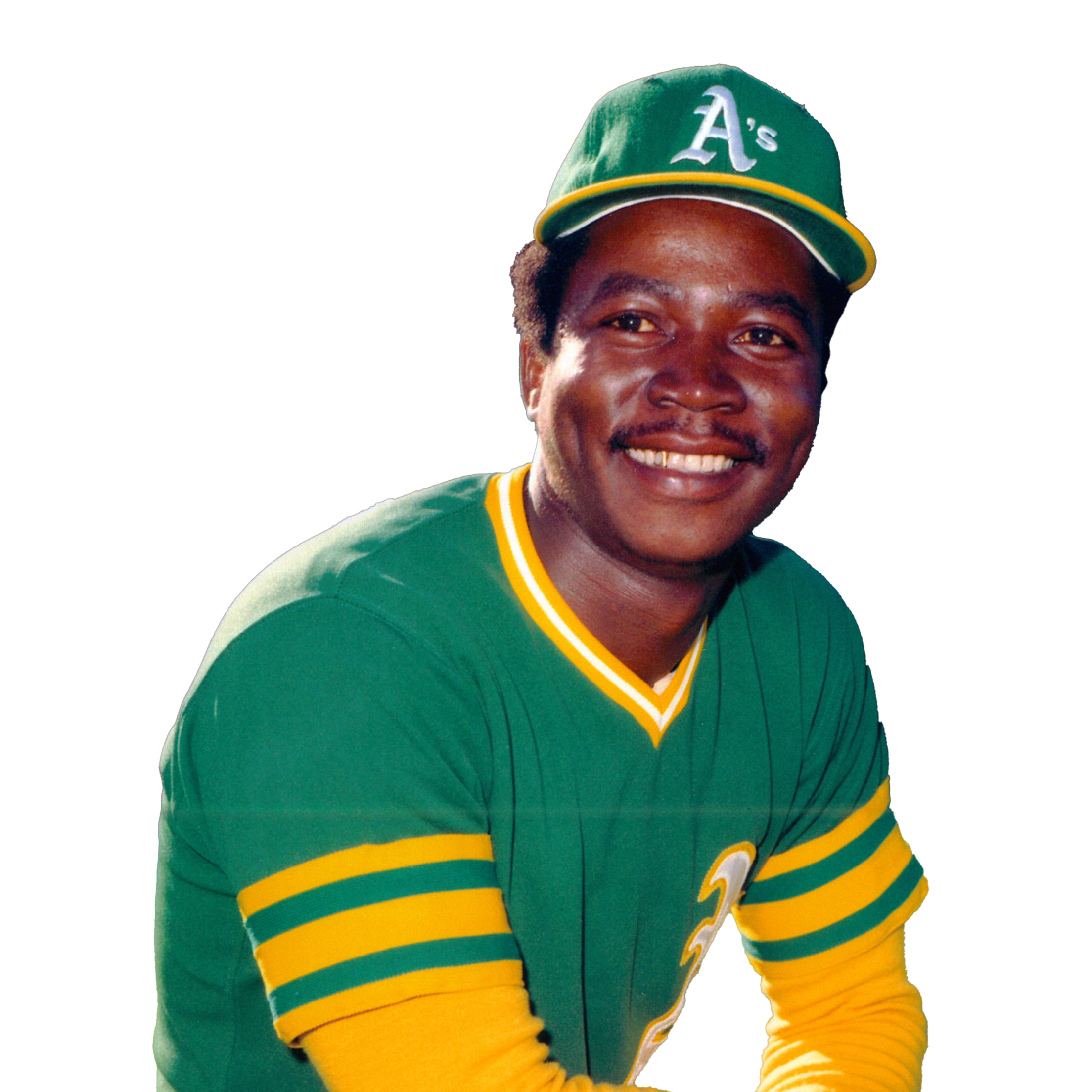
Two time All-Star, John "Blue Moon" Odom, wore number 13 throughout his career, during which he played 12 seasons in Green and Gold starting from Kansas City then heading to Oakland. He won 65 games in the A's first five seasons in Oakland and made 24 regular season starts for the 1973 World Champions.
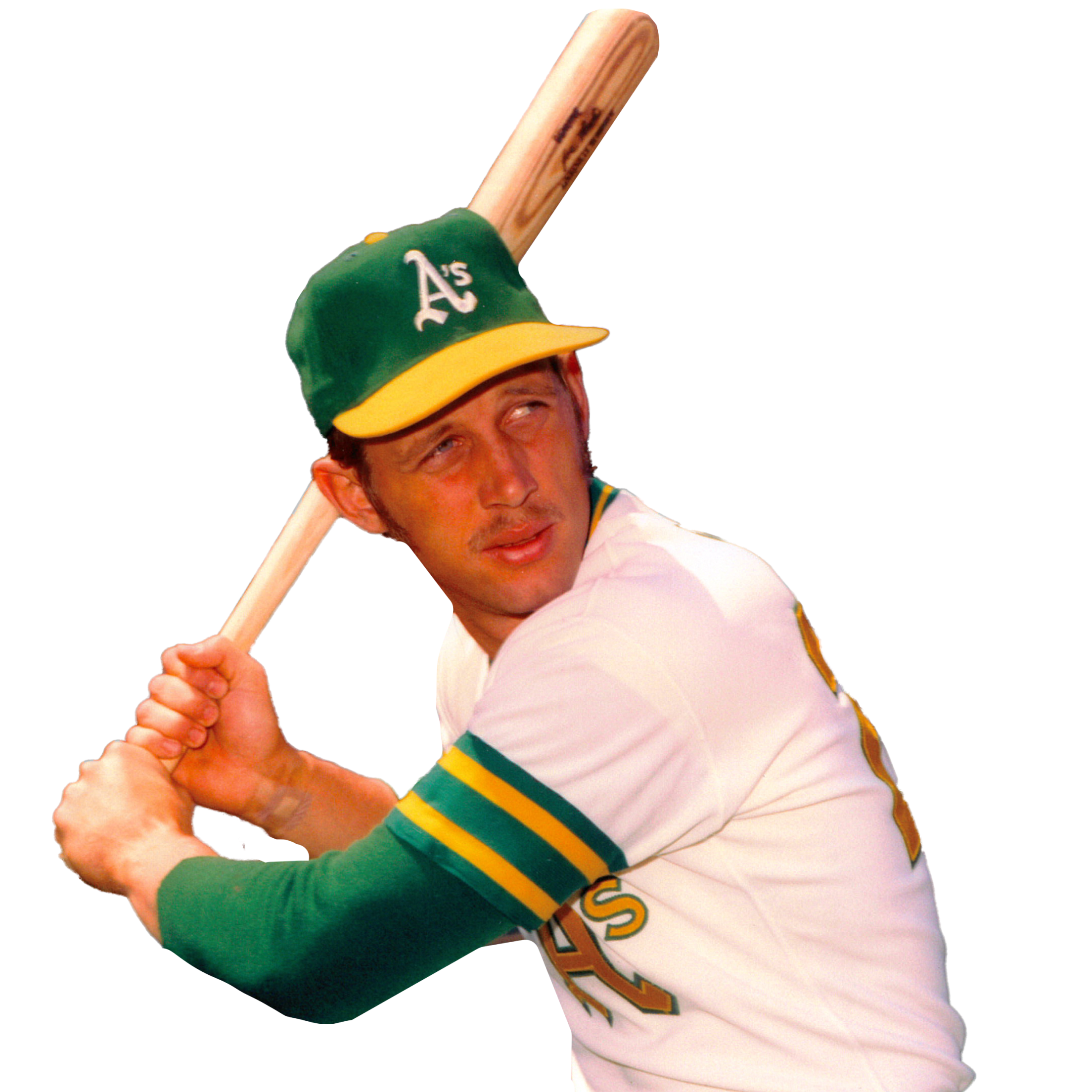
Three time All-Star and three time Gold Glover, Joe Rudi, played 11 of his 16 years with the Athletics. Although one of his most iconic moments was his leaping catch in game two of the 1972 World Series against the wall, he also hit .333 with four RBI in the 1973 World Series.
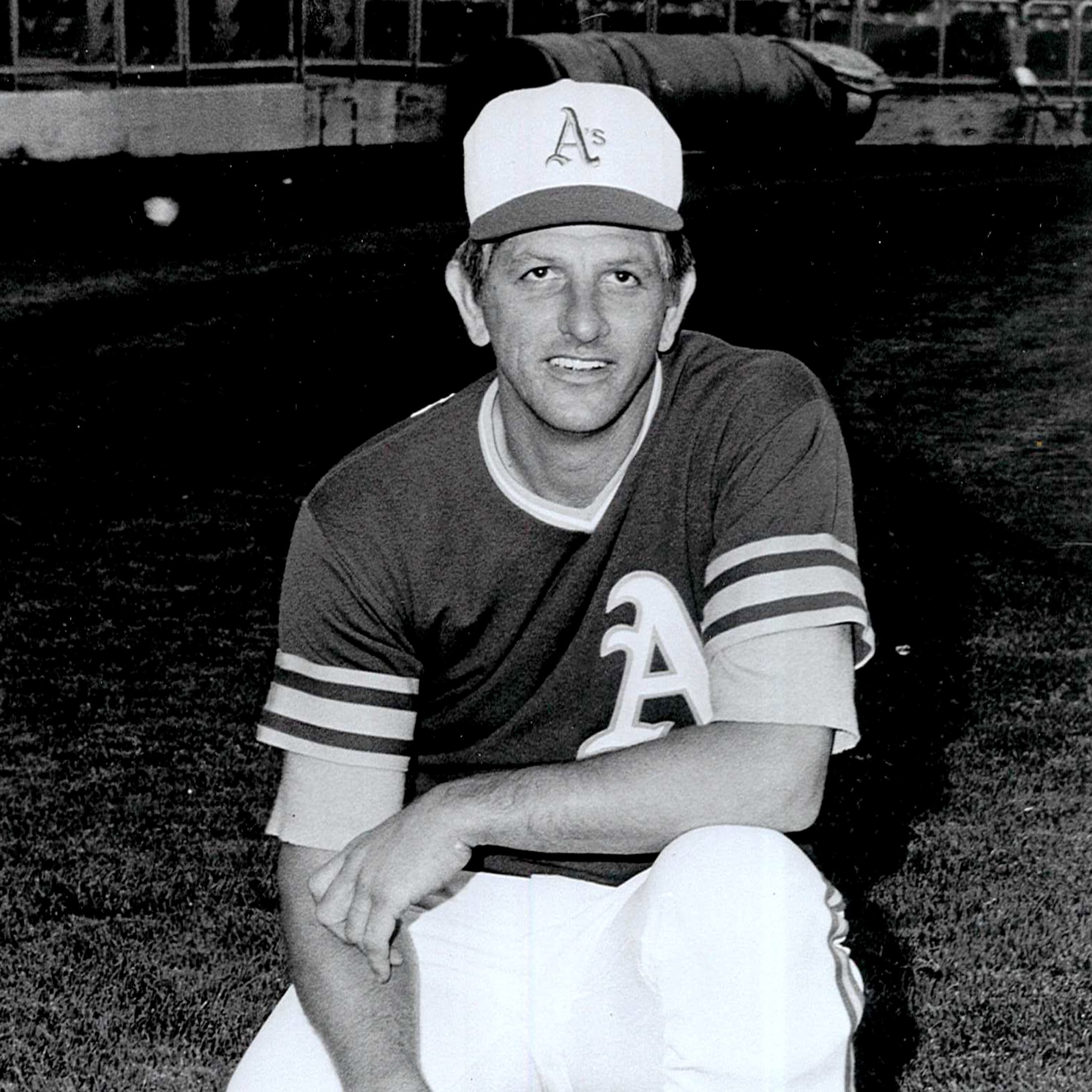
Wes Stock had two stints on the A's coaching staff, serving from 1973-76 and again from 1984-86. He was the pitching coach for the 1973 World Champions that won 94 games during the regular season and finished second in the American League with a 3.29 ERA. Stock had a nine-year career in the majors as a reliever, the final four of which were spent with the Kansas City A's from 1964-67.
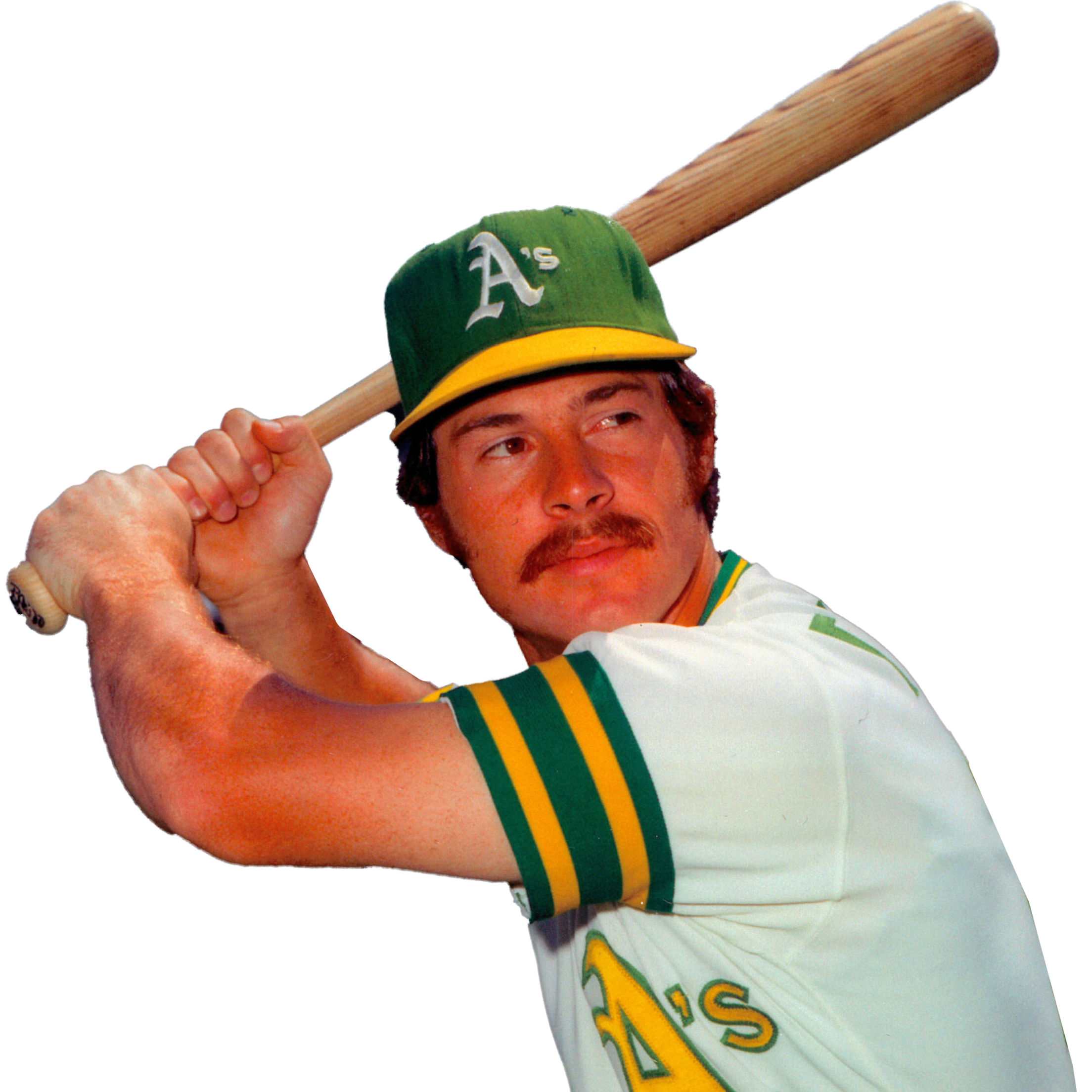
Gene Tenace played eight of his 15 years with the Oakland A's, primarily as a catcher and first baseman. He was a walk machine, drawing over 100 walks in three seasons for Oakland, including leading the league in walks in 1974. Tenace was MVP of the 1972 World Series and then hit .259 with 24 home runs, 81 RBI and 101 walks in 1973. He started all 12 games for the A's during the 1973 postseason run, including nine at first base and the final two against the Mets at catcher.